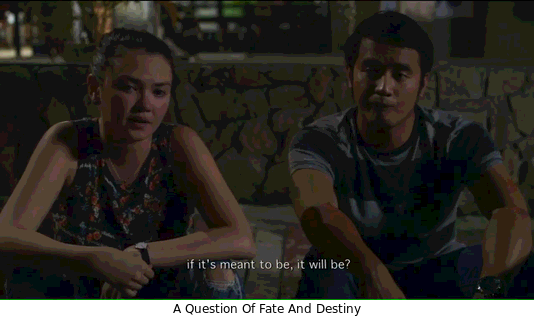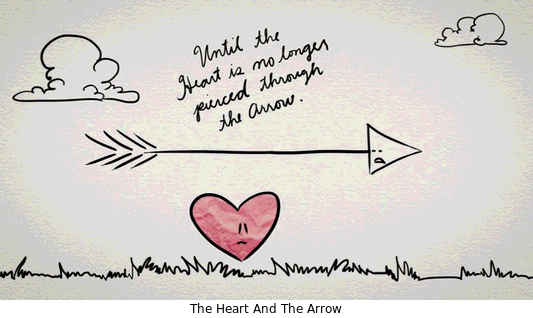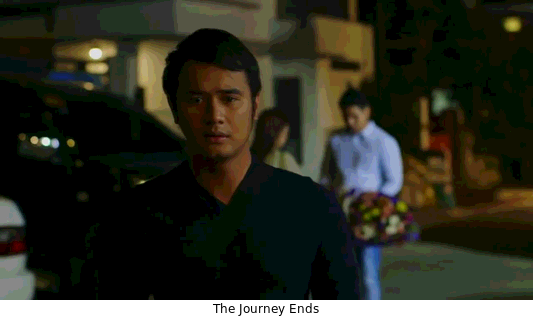>> Open Ended Endings
That Thing Called Tadhana uses its ending to support its question and journey
Open ended endings are endings that leaves the resolution to the audience. Or it can be a sequel-bait or cop-out depending on how it is executed. If the ending answers the message, what happens to the message when then ending is open? The simple answer is that the message has no easy answer, that it cannot be just a yes or no. This kind of ending wants to you to think about the message more than it wants it answered which is why I have a soft spot for it when done correctly.
I don't have high expectations for Tagalog movies since it is populated with low brow romantic comedies. If I hear someone say "pangmasa" again as an excuse for lack of quality, I will glare at that person. Once in a while, there is a rare gem of a film that I can be proud of being a Philippine movie goer. That Thing Called Tadhana (2014) is that rare gem despite appearing to be a romantic comedy.
At face value with the title and trailer, it looks like a romantic comedy that any genre savvy person would have seen more time than the number of seats in a theater. Skeptical as I am even with the accolades it has won, I approached this movie with apprehension and I was happy to be wrong. By a casual viewing, this movie is refreshing and down-to-earth which removed the need to break the mood with needless comedy. Where this shines for me is how it asks what love means in a relationship and how it executes its ending to support that.
My focus will be on the main question it raises, the meaning of their shared trip and what the ending's answer is.
SPOILER WARNING
NOTE: Compressed screenshots are simply visual aids on which scene it occured, not the actual video quality which is pretty high.
>> A Question Of Love
If it's meant to be, it will be?
If he's destined for you, he will come back to you?

The film is thankfully very simple and straightforward, it is explicit with its symbols and is dialogue heavy; however, it has good cinematography, several long takes and revels in its quiet moments which is a rarity. Being genre savvy, it implies these two will move on and hook up by the end and the film will preach to move on with your life. By title alone the theme is if it is stupid to believe in romantic fate or "tadhana".
With the same impression, the main question and the expectation of the journey are in conflict: the former suggest that each of them will go back since it is fate while the latter suggest that they move on and hook up. Experiencing a breakup leads to the question of believing in fate and as long as the question remains unresolved, so does the heartache linger. Do you believe in the one you love or move on?
Typically, the endings gives the answer or which it sides but first let us take a look at the actors and what side they represent.
>> The Journey
In understanding the characters, let's see the mechanics in which they grow. Two well-adjusted people meet up accidentally while take a sight-seeing journey, what a simple way to express moving on from heartache. No concern of money and circumstance but of heartache and solace.

Let's take a look our characters from their heartache.
>>> The Girl

The woman who was left behind by his boyfriend for a better future in another country. Some time later, she decided to visit his boyfriend but only found him living with another woman. After that, she feels torn and carries the ache with her; but she still loves him despite being tired and hurt. She tried to fight but lost and now carries that pain.
In the view of romantic fate, she believed and acted for her lover but wasn't reciprocated in the end.
>>> The Boy

The man who refused marriage and lost his girlfriend in the process. It his not that he didn't love his girlfriend but that his girlfriend demanded more responsibility and commitment which he could not give at the time. She left him but he did not chase her, letting fate decide if they are meant to be. Without action, he has moved on but still feels empty.
Using the previous lens, his inaction shows belief in it because if she is his destiny then she will come back but is rebuked and suffering for his choice since he knows that she has settled down and has a family.
>>> The Heart And The Arrow

The unfinished story of Mace about the heart and the arrow is representative of both the Mace and Anthony and their relationship. In this story, Mace is the heart while Anthony the arrow. According to it, the heart slid of the arrow because the arrow kept denying that was his; the lack of commitment from the arrow made the heart move on but the arrow still felt empty. Importantly, this analogy is foreshadowing the end of their journey.
The film's lens indicates that both believed but acted differently thus symbolizing their stances.
>>> End Of The Road
I can delve into how quaint and nice their journey is but it is the end of the pilgrimage that is most intriguing. When returning from their vacation, they find Mace's former lover at her doorstep wanting to get back to her which Anthony goes on ahead.

This scene undermines the whole journey as well as magnify the positions the characters are. In one perspective, they are their former lovers where Anthony is the one who leaves and is never chased while Mace is the one found with another man and is being begged. Fulfilling their roles in the tale, the arrow when confronted denied staying with the heart and let her slip off once more.
If you breakdown the action of each character, it means different for each of them and what the journey means. Anthony has first choice whether to fight for Mace or leave, it reflects his growth on the journey but is ultimately meaningless as he goes ahead. Next, Mace has a choice of asking Anthony to stay, it shows her acceptance in moving on but again denied. Lastly, Anthony has the final choice of fighting for Mace, which would indicate his commitment and love for her but instead gives way. At each step, there is a thematic significance and questioning of the message and journey itself.
>> Ambiguity
I liked it that Mace's former lover is not truly characterized. We do not know why he left her, we do not know the circumstance of him coming back, and we will never know his intentions; at the least, he has come back to fulfill fate or returning to the one you love. With this however, it seems to invalidate the growth of the journey.

The final scene of the film has Anthony finish the incomplete story of Mace and decides to find her and fight for her once more which is both stereotypical and subversive in context. He fights for her after losing her which is indeed typical of a romantic comedy but the subversion here is we don't know what happened to Mace. It might be futile but he now plays the role of Mace in this regard, that their time together might afford one more chance. The film then leaves the audience with a shot of the completed book leaving us with an open ending.
Here is where the tale takes a deeper meaning. Mace's unfinished tale is open-ended or without closure. Anthony giving it an ending and form is symbolic of the film itself. However, until he gives it to her, it is not complete which still leaves the events open as before. We don't know if this action is ultimately futile or romantic but isn't that what love is? Blind and stupid and also a dream.
So in the end, what is the meaning of the ending being unresolved?
>> Staying In Love
Examining the theme of romantic fate. If you believe in romantic fate, you are positioned to have Mace in a relationship and Anthony fail in his endeavor. If you don't, you believe Mace will reject her former lover and accept Anthony in the ending. In either case, Mace's former lover symbolizes the goal of the journey; by rejecting him rejects the belief, but by accepting him rejects the journey.
Despite these contradictions, neither is it wrong to believe in romantic fate nor fighting against it. Imagination and lust is what writes stories while strength and desire is why we fight against it. To accept and deny fate is both romantic. If the ending does choose a side, it denies one that makes romances very subtle and complex. Love is not a size fits all, sometimes letting things be and sometimes fighting are valid actions as shown by Mace. So by leaving the ending open, it neither denies itself at the same time the complexity of being stupidly in love. You know, you idiots.

Moving on is not wrong but it shows how waiting and letting things boil is also an option. If Mace waited and never took the journey, she is justified in her belief and patient by letting her lover miss her; but the journey gave her strength while sleeping on it. Acting and waiting. This shows that neither belief is completely wrong and can coexist.
That is also why this ending makes sense in context, because no one is ultimately wrong. One could take sides, find reason out who is more justified or discover interpretations but finding who is meant for each other is really the sentiment. I am not an expert in love, I merely understand the struggle presented by Mace and Anthony and I hope they find their destiny.
>> Meta Conflict
Let's look at the conflict in expectations with everything in mind. The showdown at the end is subverted by not being loud and dramatic. This scene typically ends up where the man pleads to the woman and getting back together; however, this scene is presented as a real issue for the main couple hooking up at the same time making their relationship secondary. At the same time, Anthony leaving subverts the typical need to fight during a conflict and show the woman his love; his leaving can be interpreted as allowing Mace to find closure which shows more concern for her than inaction while also fulfilling the failed scenario of a having a problem before truly hooking up. Lastly, showing they aren't together in the end is the most obvious subversion of a romantic film.
This film is full of subverted expectations which doubles in showing how complicated the circumstances are for this film. Rejecting the expectations is rejecting the notion of being boxed in about romantic fate.
>> Conclusion
So the use of open-ended ending here explores romantic fate whereas the use of it in The Garden Of Words explores maturity in relationship and both films are stronger for doing so. That is why I have a soft spot for it, it doesn't need to answer itself but let the audience be immersed by the possibility and meaning. I recommend this film if not for the meaningful ending and subversion, but by the simple and reserved romance it presents.